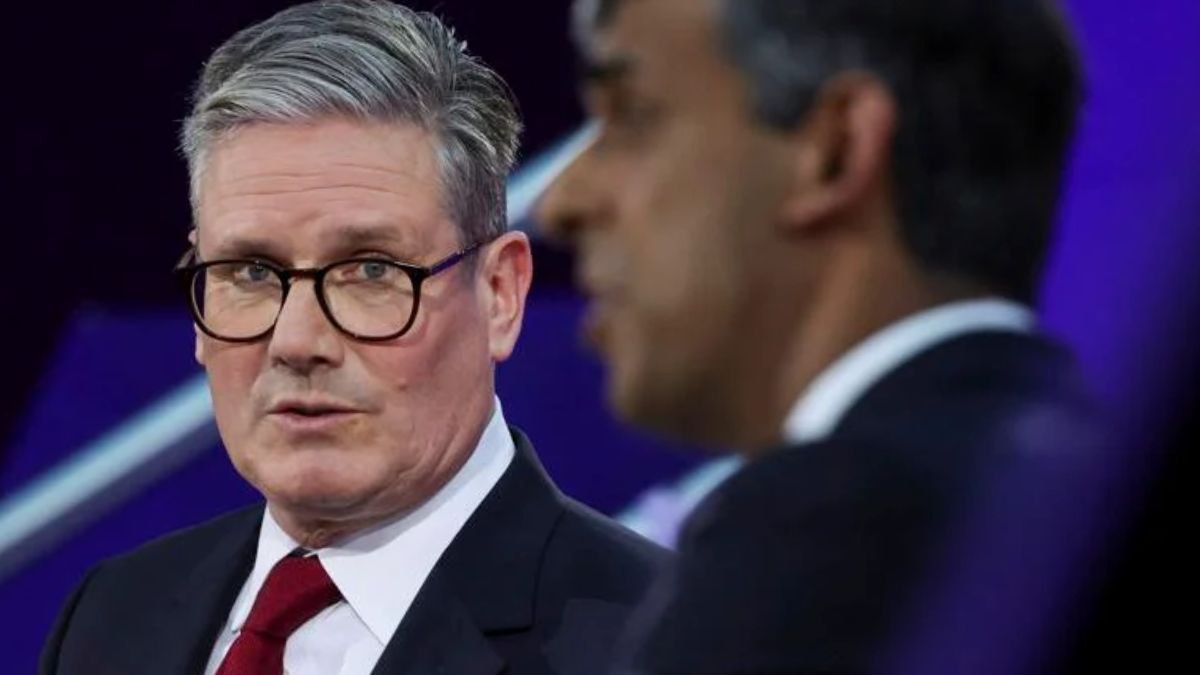The 2024 United Kingdom general elections are like none before in the centuries of British parliamentary politics.
For one, this is the first election in which a prime minister with family roots in India —a former British colony— is seeking reelection. British Prime Minister Rishi Sunak is not just of Indian heritage but is also a son-in-law of India as his wife, Akshata Murty, is an Indian citizen.
The elections come at a time UK and Europe face unprecedented situations. The misery of the Covid-19 pandemic has not yet faded from memory and the relevance of Brexit —the British exit from the European union (EU)— is also being questioned. The election is also taking place in the shadow of the Russian invasion of Ukraine, which has plunged Europe in the biggest security crisis since the World War II.
Here is a look at reasons that make the 2024 UK general elections one of many firsts.
1st election after Brexit
The UK joined the EU in 1973. Even though Conservative British icon Margaret Thatcher championed the UK’s membership of the EU, doubts began to creep into the British psyche within the next two decades.
By 1990s when the EU as we know it today finally took shape, tabloids carried screaming headlines about the overreach of Brussels-based EU bureaucrats who purportedly sought to call shots in British policymaking. The content was highly exaggerated and often inaccurate, but the questionable accuracy of claims did stop the cultivation of an anti-EU sentiment.
The anti-EU sentiment was worsened by the 2008 global financial crisis that was followed by the eurozone crisis. The ’eurozone crisis’ is a term for the collapse of financial institutions in EU member-states in quick succession in 2008. It started with the fall of Iceland’s banking system and then spread to Portugal, Italy, Ireland, Greece, and Spain. Investopedia noted that the crisis led to a loss of confidence in European businesses and economies.
Impact Shorts
More ShortsIn 2013, British PM David Cameron said he would hold a referendum on whether the UK should stay in EU or leave it. The referendum was held in 2016 and 52 per cent voters chose to leave. In 2020, the UK finally left EU after years of messy negotiations over the British economic, trade, migration, and security relationship in the post-Brexit era.
Now, this is the first elections after the Brexit. In the four years since Brexit that promised to take control of British policies from the purported overreach of the EU, secure the borders, fuel economic growth, and restore the British pride, the UK has changed prime ministers thrice, gone into recession, and suffered one political scandal after another, and dealt with uncomfortable questions of race and identity.
As British voters cast their ballots after 14 years of Conservative Party’s rule —which pushed for the Brexit— the question whether it worked as promised hangs heavy in the air.
1s election since Covid-19 pandemic
In 2019, the Conservatives under Boris Johnson won a sweeping victory in the general elections. Then, a year later, his agenda was disrupted by the worst pandemic in living memory that brought the world to a halt, ransacked the economy, and ushered in death and misery hitherto unseen. Even the famed British National Health Service (NHS) cracked under the pressure and mismanagement.
The scandals that enveloped Johnson’s tenure ranged from parties at his official residence even as the rest of UK —including the late Queen— stayed at home to party infighting as he accused Sunak of hiking taxes and not being conservative enough after he was forced to quit over the ‘Partygate’ scandal.
Voters are casting their ballots in the first elections since the pandemic and their votes are therefore bound to be a referendum on the Conservative Party’s handling of the Covid-19 pandemic, which saw the UK plunging into recession, unprecedented pressure on the NHS, bungled public messaging, and infighting among senior government leaders.
1st election since Russian invasion of Ukraine
It’s not just the economy or the political stability that the incoming British prime minister will have to deal with. They will also have to deal with the worst security threat to Europe since World War II: the Russian expansionism and the invasion of Europe.
For the UK, the Russian invasion of Ukraine was a flashback to the early invasions of European countries by Nazi Germany before plunging the world into the world war. For the UK and Europe, the Russian invasion is therefore a very existential security threat — unseen in three generations.
Even as the positions of leaders and parties differ, they are largely united on the Ukrainian question. Among the European nations, the UK has been among the foremost supporters of Ukraine and Johnson, the former British PM, was the first major Western leader to visit Kyiv while the capital was still under Russian assault. Sunak continued to support Ukraine and Sir Keir Starmer, the Labour Party leader most likely to be the next prime minister, has pledged to continue supporting Ukraine.
1st election involving an Indian-origin PM
Rishi Sunak, the sitting prime minister in the elections, is a man of many firsts: the first Indian-origin, first Hindu, and the first person of colour to be the British PM. In a country that once carried the ‘White Man’s Burden’ the world over, the rise of Sunak was a watershed moment in the British polity.
“I stand before you today as the first non-white leader in our country’s history,” said Sunak last year at the Conservative Party’s conference.
Sunak has governed the UK as a conservative and has touted his Hindu upbringing and India connect at every turn. He has said his faith guides him through the job.
Sunak further said, “My grandparents did not emigrate to just Leicester or Southampton, but to the United Kingdom. They came here because our country stands for a set of values. We are the home of fair play, the best of British.”


)


)
)
)
)
)
)
)
)



